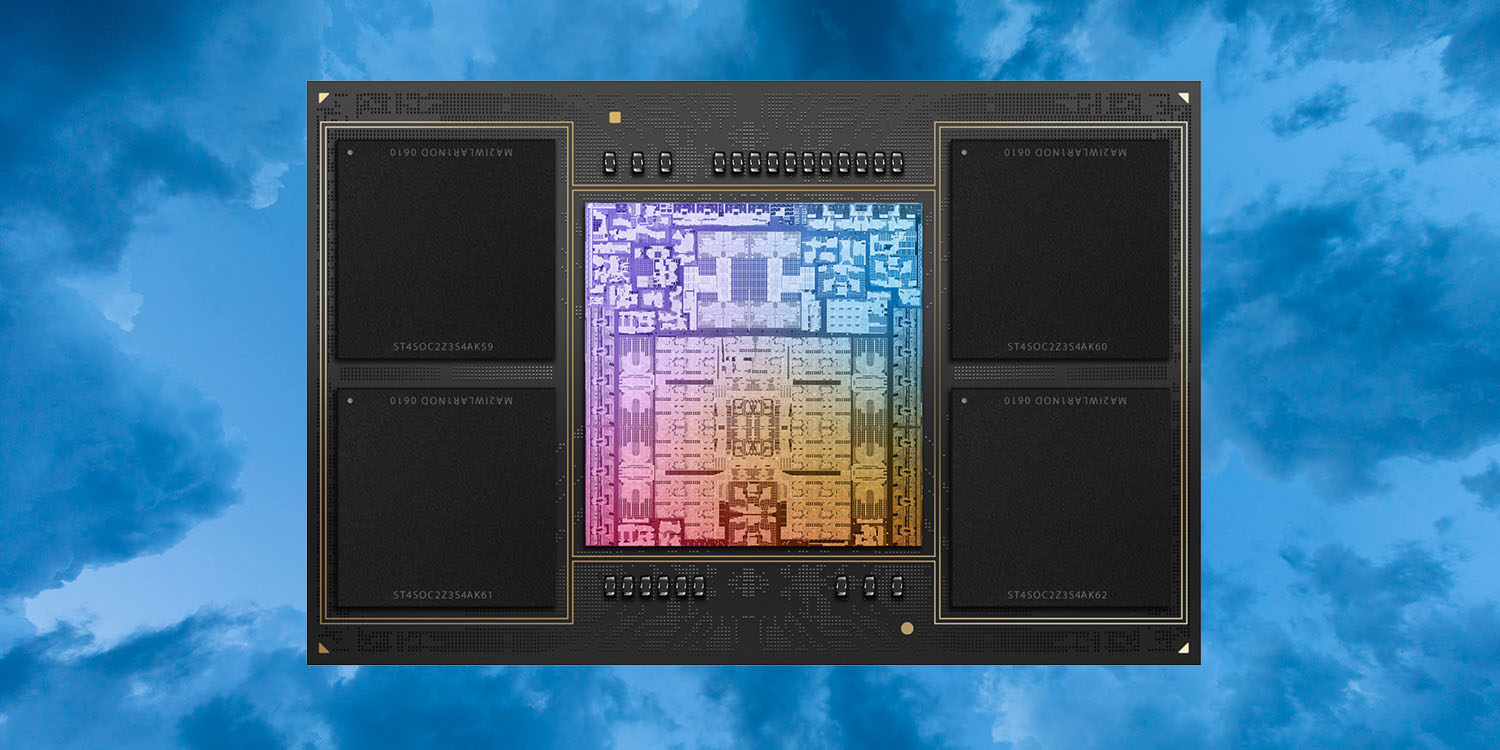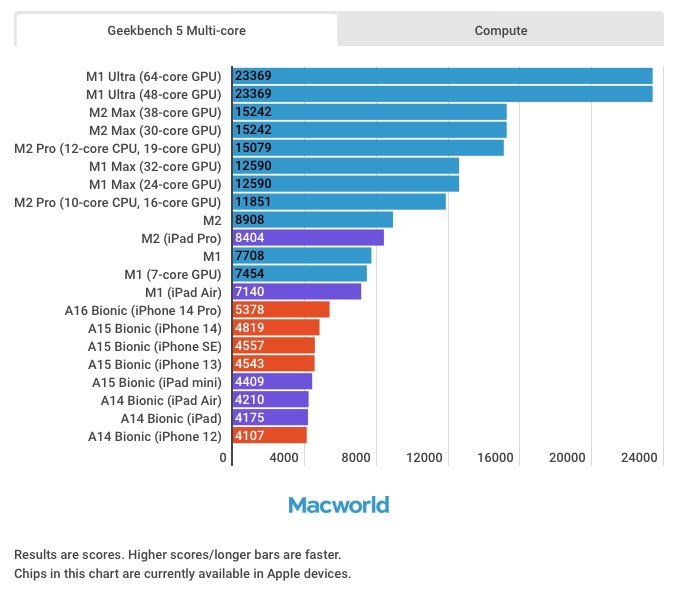
The new M2 Pro and M2 Max chips are so powerful that most reviewers said that they are actually overkill for most Mac owners, even most of those doing video work.
A new benchmark ranking shows how the machine stacks up against every other current Apple Silicon chip, from the A14 Bionic to the M1 Ultra (which still smokes the M2 Pro) …
The new chips
Apple unveiled the new chips last week, during the launch of the new Mac mini and latest MacBook Pro models.
M2 Pro scales up the architecture of M2 to deliver an up to 12-core CPU and up to 19-core GPU, together with up to 32GB of fast unified memory. M2 Max builds on the capabilities of M2 Pro, including an up to 38-core GPU, double the unified memory bandwidth, and up to 96GB of unified memory. Its industry-leading performance per watt makes it the world’s most powerful and power-efficient chip for a pro laptop. Both chips also feature enhanced custom technologies, including a faster 16-core Neural Engine and Apple’s powerful media engine […]
“Only Apple is building SoCs like M2 Pro and M2 Max. They deliver incredible pro performance along with industry-leading power efficiency,” said Johny Srouji, Apple’s senior vice president of Hardware Technologies. “With an even more powerful CPU and GPU, support for a larger unified memory system, and an advanced media engine, M2 Pro and M2 Max represent astonishing advancements in Apple silicon.”
While the chips are still built on a 5nm architecture, Apple says that the M2 Pro squeezes in 40 billion transistors – almost 20% more than the M1 Pro, and twice as much as the base M2 chip. The M2 Max ups that to 67 billion transistors.
Apple described the M2 Pro as being 40% faster than the M1 Pro, and 80% faster than the top-end Core i9 chip in the last Intel-powered 16-inch MacBook Pro.
M2 Pro and M2 Max versus other Apple Silicon
Macworld looked at how the new chips stack up against not just their predecessors, but against all other current Apple Silicon chips.
We’ve only included chips in Apple devices that are still for sale and it’s a somewhat predictable chart, with the fastest Macs at the top, followed by a mix of iPads and iPhones. But there are still some fascinating results: Owners of the iPad Pro can say their tablet is about as fast as a MacBook Air and that wouldn’t be an exaggeration. And the difference between the $399 iPhone SE and the $899 iPhone 14 isn’t as huge as their price difference indicates.
Owners of the Mac Studio might have raised an eyebrow at the new Mac mini, wondering whether they would have been better off waiting, but the news could have been worse.
If you have an M1 Ultra Mac Studio, the new chips haven’t dethroned that as the king of speed. Both 48-core and 64-core variants still leave even the M2 Max in the dust, with a Geekbench 5 Multi-core score of 23,369 against 15,242 for the two M2 Max chips; 15,079 for the top-end M2 Pro; and 11,851 for the M2 Pro with 10-core CPU and 16-core GPU.
The M1 Max also sits between the two M2 Pro variants, with a score of 12,590.
Check out the full ranking below, and the full piece for all the details.

FTC: We use income earning auto affiliate links. More.





Comments